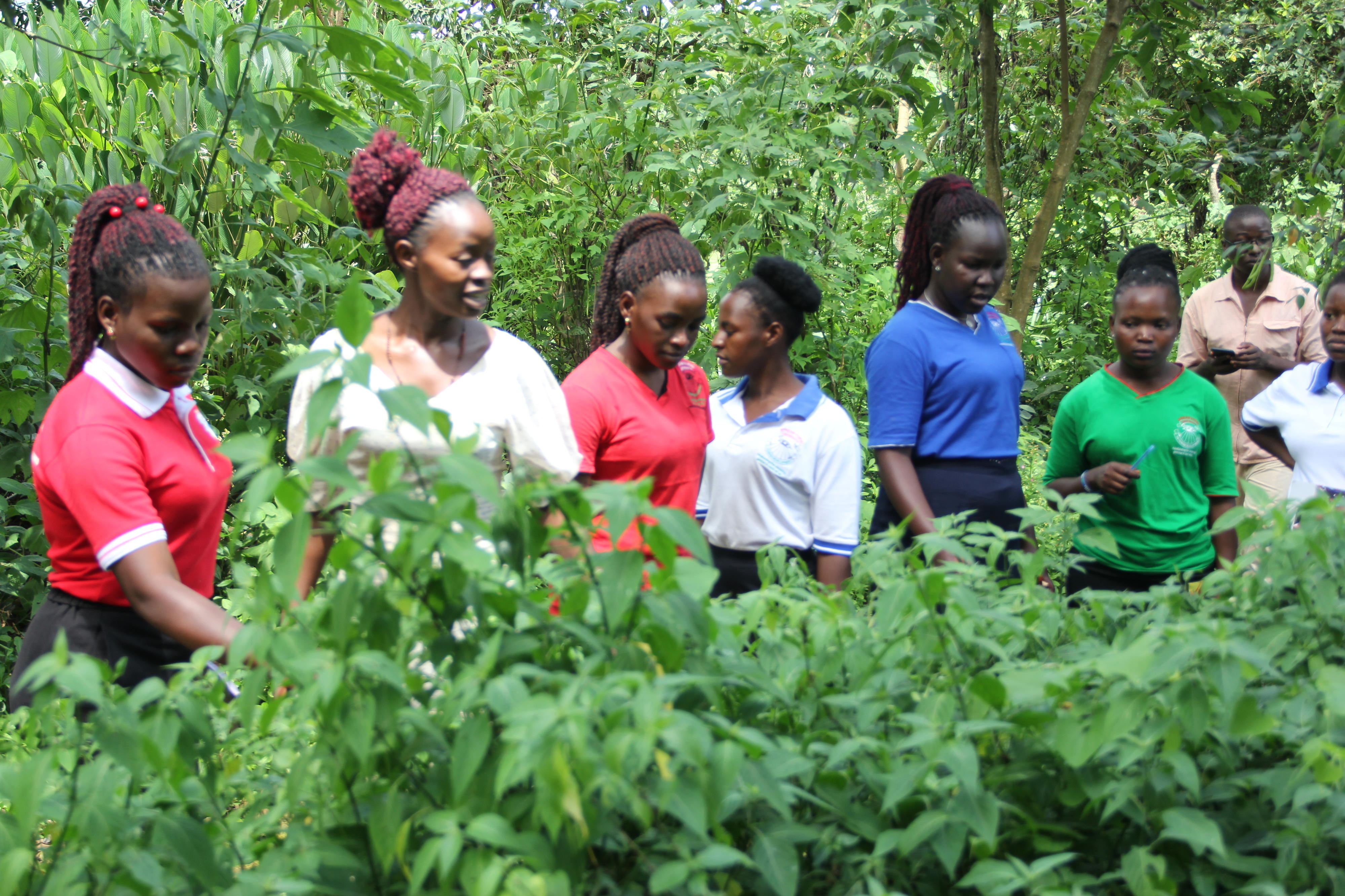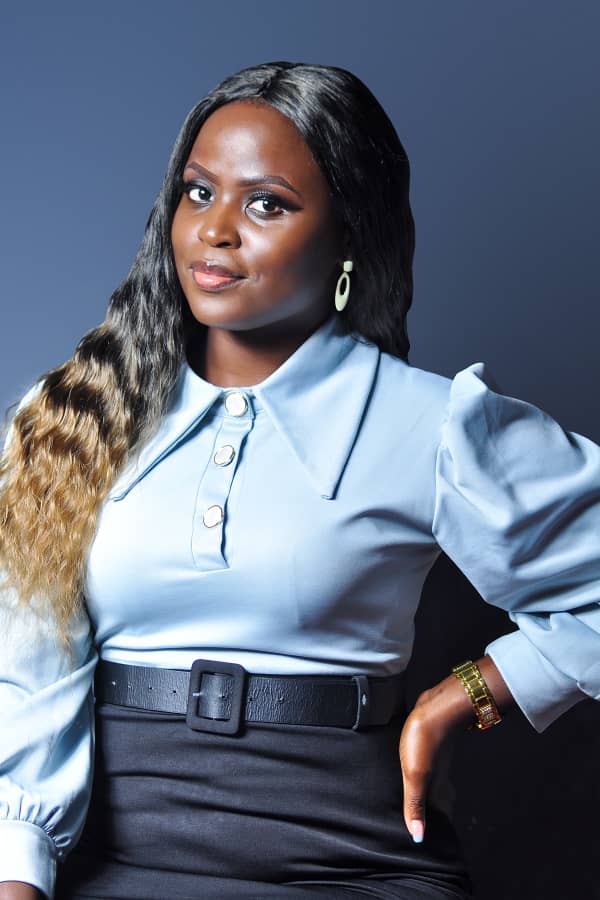Prime
Transforming communities through mindset change

Some of beneficiaries at African Rural University. PHOTO | ESTHER BRIDGET NAKALYA
What you need to know:
- The two-generational approach is a learning and mindset change initiative that focuses on specifically the girl-child in Kagadi, Kibaale and Kakumiro districts It involves participation of the young and old generation which comprises parents and students.
The education sector seems to have run out of innovative thinking due to concepts that have been adopted and crammed in classrooms. These ideas that manifest in academic syllabuses have lost base for great thinkers as well as wealth creators hence leaving a number of youth jobless.
However, actors in the sector such as; Uganda Rural Development Training Institute in Kagadi realieed a way to create an impactful change among young people. This, it has done by fronting more job creators through a mindset change programme.
The programme which not only focuses on academic excellence of learners has also bridged a knowledge gap among different stakeholders in the community on how to transform from poverty to prosperity through shared visions.
Mindset
At 15 years of age, Jackline Katusabe had a fair chance at an education but this came after struggles with school fees. Her mother was a subsistence farmer.
“My parents always struggled with the basic needs at home since we generated low income from the one acre piece of land where my mother practiced subsistence farming,” she recounts.
Although Katushabe completed her primary school against all odds, her parents had two of more children to fend for.
Luckily, Katushabe and her mother were introduced to a life changing programme at Uganda Rural Development Training Institute (URDT).
“On joining the initiative, we went through a one-week training of the visionary approach which opened our minds to envision the kind of family we wanted to have at home,” she shares.
Before, she never had a vision throughout her schooling and probably had no idea of what she wanted to become when older.
In the pursuit of molding visionary leaders, she admits, this approach created a shared vision for her household, a concept they all had to work towards as a family.
“Since we had a discussion of unison as a family, we decided to work hard and advanced from subsistence to commercial farming where we planted maize, beans and coffee,” she says.
With a great return in sales, Katushabe reveals that her family was able to accumulate about Sh 1m from coffee off one season, an achievement that won them expansion in terms of farm land and a rental business in the town outskirts.
“We now own two acres of farmland for coffee and banana plantations as well as started a piggery project,” she confirms.
Eight years later, Katushabe is an agent for change in her community. She believes development should be communal so that others are not left out in the society. She walks the talk and preaches mindset change to her peers which she says has extensively yielded results to her community.
Knowledge
Likewise, Beatrice Acio, a second year student at African Rural University, an initiative under URDT saw a ray of hope on joining the program
“Initially I was always shy and almost never knew what to do, where and how to get things done. Even worse, I always used to fall sick after every two weeks but still had no workable solutions with treatment of the condition,” she explains.
In 2021, Acio joined the sustainable agriculture class at the University where she discovered a number of learning concepts and met rural transformation specialists.
It is then that learning started and she understood how to manage her life aspirations and her endless ailments.
“I was introduced to the arboretum/ herb specialist who prescribed and taught me how to mix different treatment herbs for malaria. I also learnt how to make herbal soap and other medicinal products,” she says.
With improved health now, she attributes her knowledge to the practical and vigorous trainings at the school that include systemic approach that turns visions into action steps.
“I was able to transfer this knowledge to projects at home such as the piggery unit where we only had the local breeds with a vision to have hibrids where. We took action steps towards owning almost all breeds,” Acio shares.
With utmost confidence, Acio now feels empowered and runs most of the projects at home which was not the case before for a girl-child in the community. She also makes this knowledge accessible to her community hence creating change among the community members.
The approach
The two-generational approach is a learning and mindset change initiative that focuses on specifically the girl-child in Kagadi, Kibaale and Kakumiro districts It involves participation of the young and old generation which comprises parents and students.
According to Robert Katabazi, the director of education at URDT, this initiative was started to bridge the knowledge gap between children and the parents in order to bring about change.
Katabazi says, “Shared vision only happens when there is no knowledge or information gap among members of the same homestead
Adding that, this pushes family members to have a unified action plan and start working towards food security and a sustainable income hence development.
The approach, he shares, entails mentorships, orientation and learning workshops where parents, teachers and learners are engaged in different conceptual processes to spearhead change in communities.
“The parent-child training runs for a week where we take them through the visionary approach where they visualise their dreams through their minds, drawing it on paper and further presenting it,” he says.
These sets of vigorous training are followed up with teacher visits to the different homesteads to assess the progress and know the challenges as well as training workshops for teachers to pass on the knowledge to parents and children.
Selection criteria
Mwalimu Musheshe, the vice chancellor at URDT, says the programme takes on only 35 females out of more than 200 applicants annually from Primary Five levels until university.
“The selection process happens to ensure that the candidates meet the criteria of the required academic documentation, identification documents, those from poor households with access to land and no knowledge on how to use it among others,” he enlists.
During the interview process, Musheshe explains, the girls get to engage in both academic and co-curricular activities such as debate, netball, MDD and athletics for each to be listed for the next intake every year.
Mr Katabazi notes the process of verification that is taken up while listing the final candidates.
“We send our teams to the community to verify if these children are disadvantaged and also sort out candidates basing on whether they submitted good academic credentials and detailed identification requirements,” he says.



